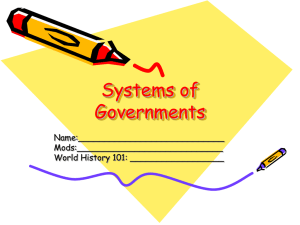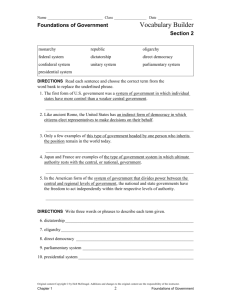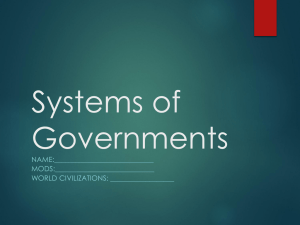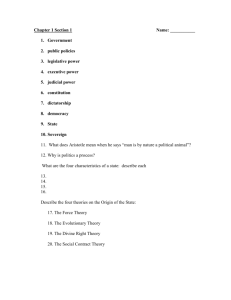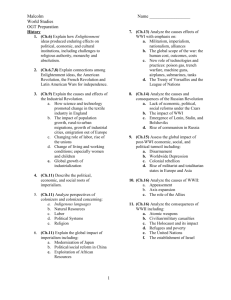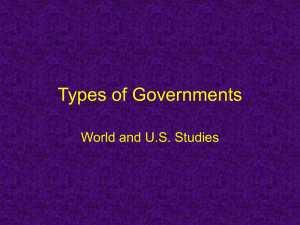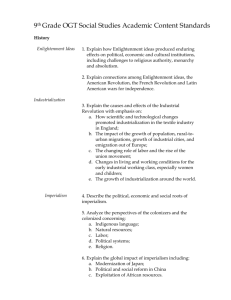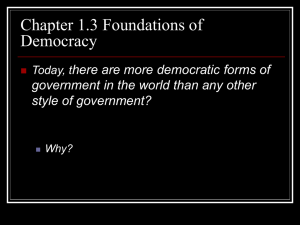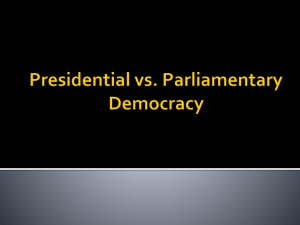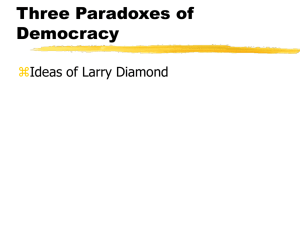Government & Economic Systems World History ODE Indicators
advertisement
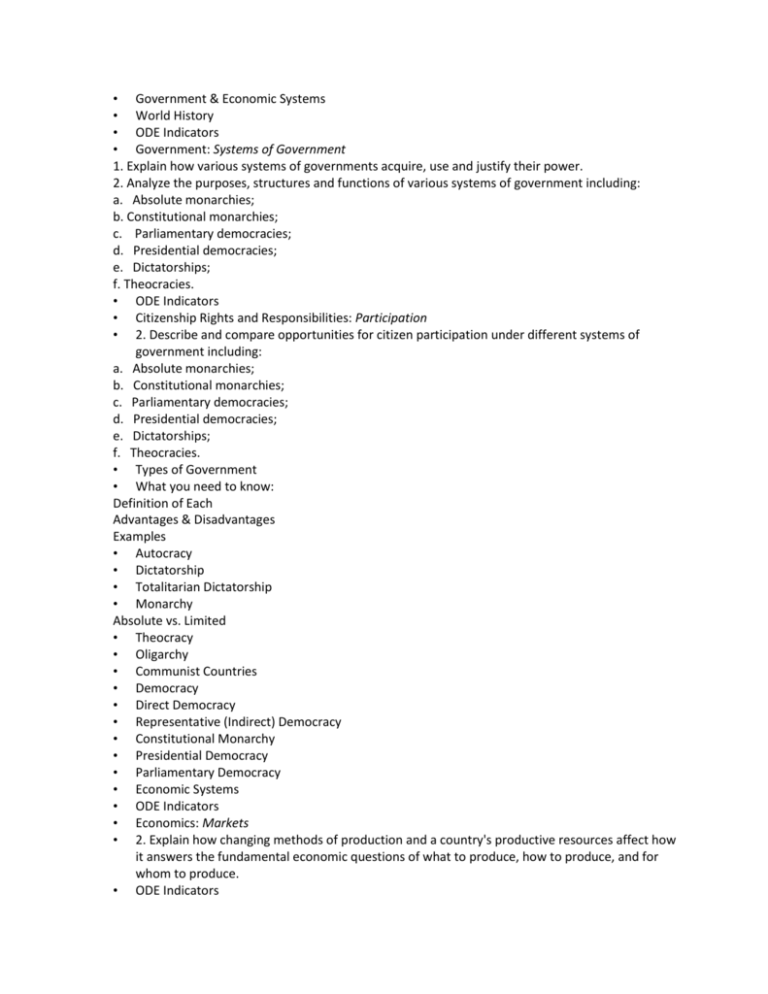
• Government & Economic Systems • World History • ODE Indicators • Government: Systems of Government 1. Explain how various systems of governments acquire, use and justify their power. 2. Analyze the purposes, structures and functions of various systems of government including: a. Absolute monarchies; b. Constitutional monarchies; c. Parliamentary democracies; d. Presidential democracies; e. Dictatorships; f. Theocracies. • ODE Indicators • Citizenship Rights and Responsibilities: Participation • 2. Describe and compare opportunities for citizen participation under different systems of government including: a. Absolute monarchies; b. Constitutional monarchies; c. Parliamentary democracies; d. Presidential democracies; e. Dictatorships; f. Theocracies. • Types of Government • What you need to know: Definition of Each Advantages & Disadvantages Examples • Autocracy • Dictatorship • Totalitarian Dictatorship • Monarchy Absolute vs. Limited • Theocracy • Oligarchy • Communist Countries • Democracy • Direct Democracy • Representative (Indirect) Democracy • Constitutional Monarchy • Presidential Democracy • Parliamentary Democracy • Economic Systems • ODE Indicators • Economics: Markets • 2. Explain how changing methods of production and a country's productive resources affect how it answers the fundamental economic questions of what to produce, how to produce, and for whom to produce. • ODE Indicators • 3. Analyze characteristics of traditional, market, command and mixed economies with regard to: a. Private property; b. Freedom of enterprise; c. Competition and consumer choice; d. The role of government. • 4 Economic Systems • Capitalism • Command • Traditional • Mixed • Examples, Advantages & Disadvantages of Each • Economic Systems • Economic Systems vs. Government Systems What’s the Difference? • 3 Basic Questions What to produce? How to produce? For whom to produce? • Capitalism • Other Names Market, Free Market, Free Enterprise • Origins Adam Smith (The Wealth of Nations) Laissez faire The Invisible Hand • Characteristics Private Ownership Competition Profit Incentive • Traditional • Command Economies • Socialism Equal distribution of wealth Governmental (Society) control Public Ownership Democratic vs. Authoritarian • Communism Karl Marx Class Warfare Bourgeoisie vs. Proletariat • Mixed • No pure traditional system, pure market system or pure command system exists in today’s world. All economies are mixed to some degree! • International Trade • What are the Benefits of World Trade? • We Get More Stuff!!! Imports • We Get Better Stuff!!! Competition • We Get Cheaper Stuff!!! Competition • We Get Mo’ Money!!! Exports & Jobs • Advantages • Absolute Specialization • Comparative • U.S. Balance of Trade • Good or Bad • Protectionists • Why restrict free trade? Job Security National Economic Security Infant Industries • How to Restrict Imports? Tariffs Quotas Embargoes • Financing World Trade • The International Monetary Fund • Currency Exchange Rate • Trade Agreements • World World Trade Organization • Regional European Union North American Free Trade Agreement
